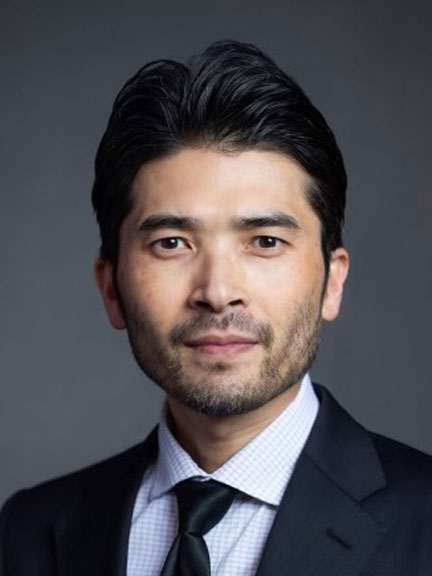Shinkyu (James) Lee
Visiting Asst. Prof. of International & Global Studies

- Office
- Munroe Hall 102
- jl19@middlebury.edu
- Office Hours
- Tuesdays & Thursdays 11:15AM–12:15PM and 2:30–3:00PM
Shinkyu “James” Lee is a Visiting Assistant Professor of International and Global Studies at Middlebury College, where he also serves as the Track Director for the Global Migration and Diaspora track and as a Faculty Fellow at the Rohatyn Center for Global Affairs. He holds a PhD from the joint program of the Department of Political Science and the Kroc Institute for International Peace Studies at the University of Notre Dame.
His research draws on the intellectual traditions of political thought, in and beyond the West, to critically revisit core concepts and analyze contested issues in conflict and peace studies. He also explores the intersections of religion and politics, as well as political ideologies in East Asia. His peer-reviewed articles have appeared in journals such as European Journal of Political Theory, International Politics, Journal of International Political Theory, Journal of Religious Ethics, Polity, and The Review of Politics. His book manuscript, Arendtian Peace, is currently under external peer review at a university press.
Formerly a soldier, seminarian, and NGO worker, he emphasizes the close relationship between theoretical ideas and the real world of politics in his teaching. Before coming to Middlebury, he taught in the Department of Politics at Oberlin College.
Courses Taught
IGST 0101
Current
Intro to Intl & Global Studies
Course Description
Introduction to International and Global Studies
This is the core course of the International and Global Studies major. It is an introduction to key international issues and problems that will likely feature prominently in their courses at Middlebury and study abroad. Issues covered will differ from year to year, but they may include war, globalization, immigration, racism, imperialism, nationalism, world organizations, non-governmental organizations, the European Union, the rise of East Asia, politics and society in Latin America, and anti-Americanism. 3 hrs. lect./disc.
Terms Taught
Requirements
PSCI 0109
International Politics
Course Description
International Politics
What causes conflict or cooperation among states? What can states and other international entities do to preserve global peace? These are among the issues addressed by the study of international politics. This course examines the forces that shape relations among states, and between states and international regimes. Key concepts include: the international system, power and the balance of power, international institutions, foreign policy, diplomacy, deterrence, war, and global economic issues. Both the fall and spring sections of this course emphasize rigorous analysis and set theoretical concepts against historical and contemporary case studies. 3 hrs. lect./disc. (International Relations and Foreign Policy)
Terms Taught
Requirements
PSCI 0252
Human Rights & Global Politics
Course Description
Human Rights in Global Politics
Does the pursuit of human rights promote world peace or generate conflict? In this course we will investigate the status of human rights in global politics. We will examine theoretical arguments about the universality of human rights, the dominance of liberal human rights regimes, and the compatibility of restorative justice and human rights. We will discuss contested cases such as the “Asian Values” critique of human rights, the Responsibility to Protect (against mass atrocities) doctrine, and the work of Truth and Reconciliation commissions. Through the course, students will acquire the skills needed to analyze the impact of human rights on political actors in the international arena. (Not open to students who have completed PSCI 0237) (International Relations and Foreign Policy)
Terms Taught
Requirements
Peer-Reviewed Publications
8. “Beyond Truth: A Politics of Reality in Arendt and Bonhoeffer,” The Review of Politics, FirstView (forthcoming, Spring 2026). https://doi.org/10.1017/S0034670526100564.
7. “The Political vs. the Theological: The Scope of Secularity in Arendtian Forgiveness,” Journal of Religious Ethics 50, no.4 (2022): 670–695.
6. “The Real Promise of Federalism: A Case Study of Arendt’s International Thought,” European Journal of Political Theory 21, no.3 (2022): 539–560.
5. “The Lex of the Earth? Arendt’s Critique of Roman Law,” Journal of International Political Theory 17, no.3 (2021): 394–411.
4. “Hannah Arendt’s International Agonism,” The Korean Review of Political Thought 27, no.2 (2021): 215–244.
3. “Building Communities of Peace: Arendtian Realism and Peacebuilding,” Polity 53, no.1 (2021): 75–100.
2. “Hannah Arendt and International Relations,” in the Oxford Research Encyclopedia of International Studies, ed. Nukhet Sandal (Oxford: Oxford University Press, 2021). https://doi.org/10.1093/acrefore/9780190846626.013.665.
1. “Freedom, the State, and War: Hegel’s Challenge to World Peace,” International Politics 54, no.2 (2017): 203–220.
